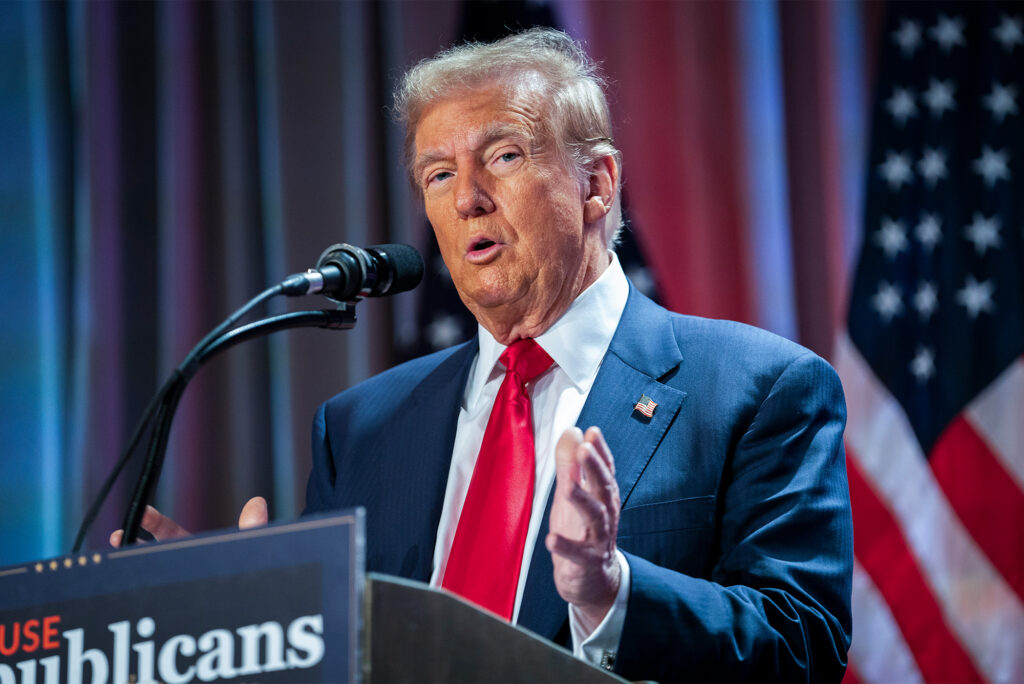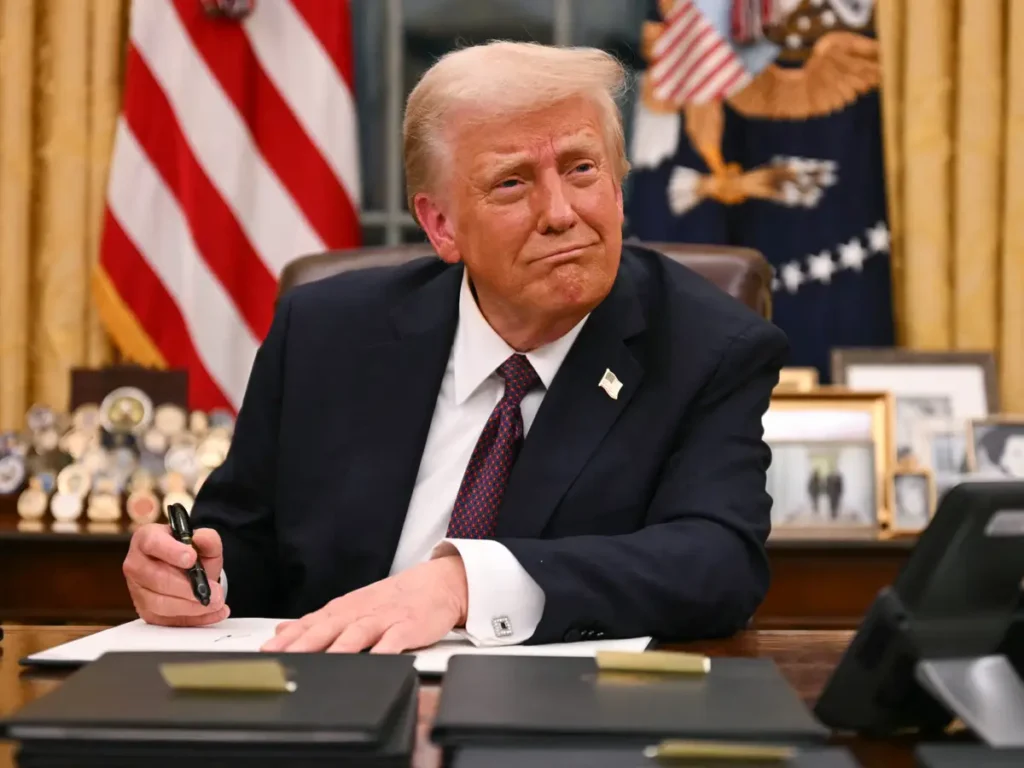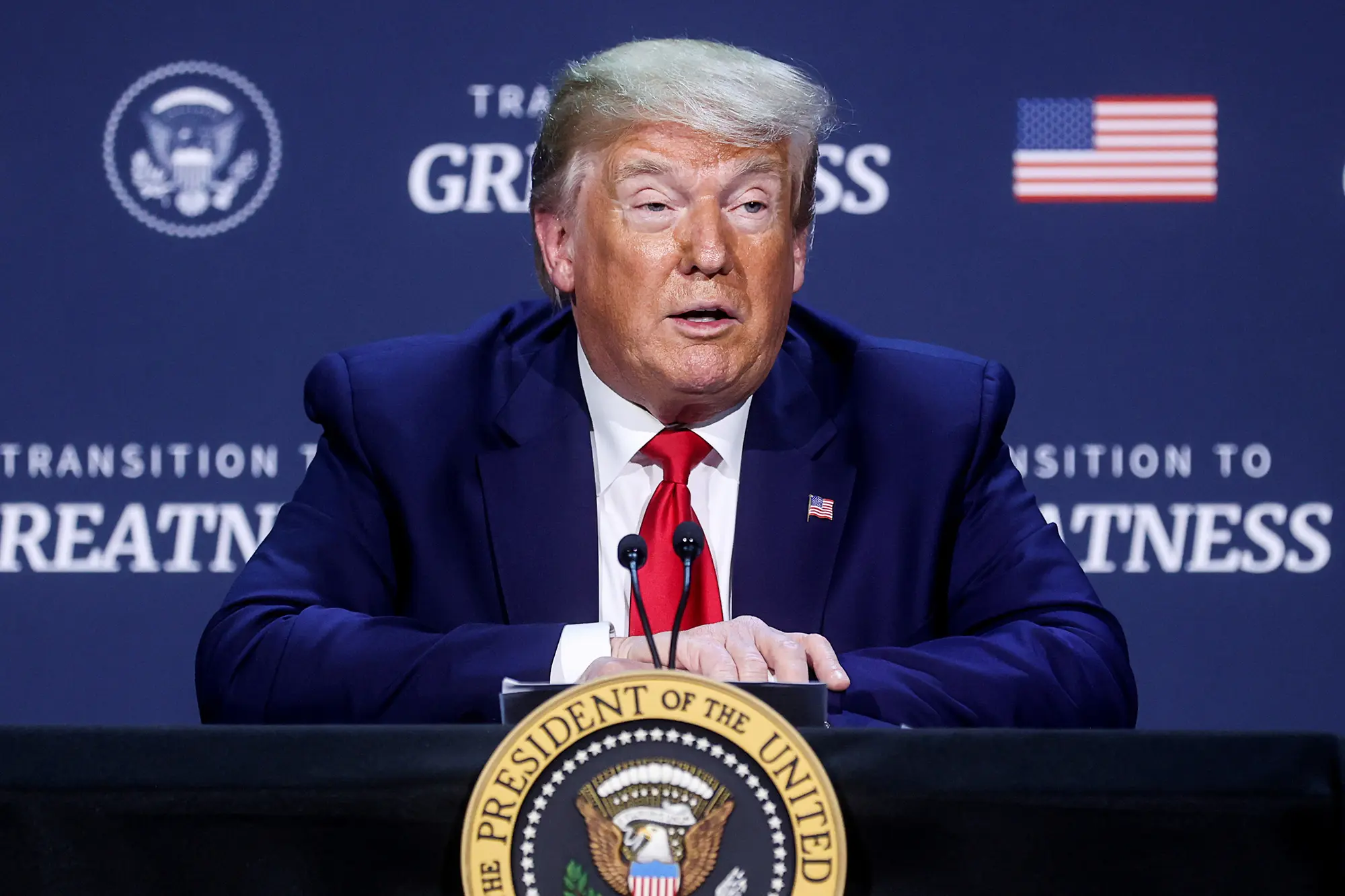U.S. President Donald Trump has unveiled a sweeping set of tariffs, imposing a 34% levy on imports from China, a 20% tariff on European Union goods, and a 10% baseline import tax on Ghana and other nations.
Declaring a national economic emergency, Trump justified these measures as necessary to revive domestic manufacturing and counter what he called decades of economic exploitation by foreign countries.
The announcement, made from the White House Rose Garden, immediately triggered a sharp sell-off on U.S. stock markets, with analysts predicting rising prices on essential goods like housing, automobiles, and clothing. Many economists fear that the new tariffs will have far-reaching consequences, potentially pushing the global economy into recession.

Financial experts warn that these tariffs will significantly raise the average U.S. tariff rate from 2.5% to 22%, leading to higher costs for both businesses and consumers. Olu Sonola of Fitch Ratings cautioned that multiple economies could slide into recession if these trade barriers persist.
Additionally, comparisons have been drawn to the Smoot-Hawley Tariff Act of 1930, which worsened the Great Depression by triggering international retaliation. Critics argue that Trump’s policies could have similar damaging effects, with U.S. tariffs reaching their highest levels in nearly a century.
In response, key U.S. trading partners, including the European Union and China, are expected to implement retaliatory tariffs, further straining global supply chains. Ghana and other affected nations reliant on U.S. trade could face severe economic instability.
While Canada and Mexico remain exempt under the USMCA trade agreement, China faces additional penalties, including a 20% surcharge due to its alleged role in fentanyl production.

Despite bipartisan warnings from lawmakers, especially those representing agricultural and border states, Trump remains steadfast in his belief that these tariffs will generate massive revenue and restore fairness in global trade.
However, with mounting fears of an economic downturn, the long-term consequences of this aggressive trade policy remain uncertain.




